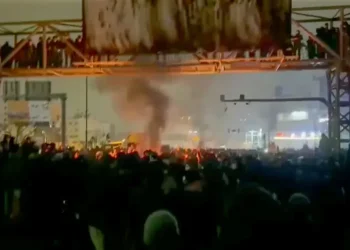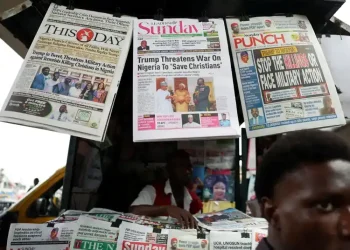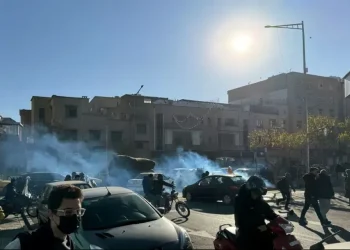Lawmakers Brace for Trump’s Jan. 6 Pardon Promise as Concerns Mount
As the fourth anniversary of the January 6 Capitol riot approaches, lawmakers are gearing up for the potential pardons promised by President-elect Donald Trump. These pardons could impact more than 1,500 individuals charged with crimes related to the insurrection, many of whom have already been convicted or pled guilty.
Trump’s Promise and Its Implications
Trump has repeatedly stated that he plans to issue pardons to those involved in the January 6 riot, with a promise to do so on his “Day 1” in office, beginning January 20. On NBC’s Meet the Press, Trump elaborated on his plan, saying, “Most likely, I’ll do it very quickly. Those people have suffered long and hard, but there may be exceptions if someone was radical or crazy.”
His remarks come as lawmakers prepare to certify a presidential election for the first time since the 2021 attack. That day, Trump supporters stormed the Capitol, halting the certification of Joe Biden’s victory.
Support for Pardons: A Divided Republican Response
Rep. Marjorie Taylor Greene (R-Ga.) is one of the most vocal proponents of pardoning all individuals involved in the riot, arguing that those who have been imprisoned since 2021, including those who fought Capitol Police, have “served their time.” She contends that the justice system is unfair and calls for a blanket pardon for those convicted. “Some of these people have been sentenced to 10, 18 years or more, and I think it’s an injustice,” Greene said.
However, other Republicans are more cautious. Rep. Jim Jordan (R-Ohio), a staunch Trump ally, has expressed support for pardoning individuals who did not commit violence, stating that it makes sense to pardon those who were non-violent. Meanwhile, Rep. Gus Bilirakis (R-Fla.) believes pardons should be considered on a case-by-case basis, especially when it comes to those who attacked law enforcement.
Rep. Dusty Johnson (R-S.D.) emphasized the need for distinction, stating that trespassers should be treated differently than those who damaged property or attacked police officers. “People who attacked police officers, listen, I don’t think that is something we should ever condone,” Johnson said.
Opposition from Law Enforcement and Democrats
Police officers who defended the Capitol on January 6 are particularly opposed to the idea of pardons. About 140 officers were injured in the riot, making it one of the largest mass assaults on law enforcement in U.S. history. Capitol Police Sgt. Aquilino Gonell, who retired due to injuries sustained during the attack, strongly condemned the idea of pardoning those who injured officers and ransacked the Capitol.
“You cannot be pro-police officer and rule of law if you are pardoning people who betrayed that trust, injured police officers, and ransacked the Capitol,” said Gonell.
Democratic lawmakers who led the push for Trump’s impeachment and investigated the attack are also voicing strong opposition. Rep. Bennie Thompson (D-Miss.) argued that pardoning those who attacked law enforcement officers would be deeply offensive, particularly to those who risked their lives to protect the Capitol.
Rep. Jamie Raskin (D-Md.) echoed concerns, emphasizing the importance of requiring those pardoned to express remorse and prove that they no longer pose a threat to public safety. “Anything that happens by these people in the future will be laid at the doorstep soon-to-be President Donald Trump,” Raskin warned.
Personal Reactions from Lawmakers
For many lawmakers, the idea of pardoning individuals involved in the attack hits close to home. Rep. Jim Himes (D-Conn.), who was trapped in the House gallery as rioters attempted to break in, described how difficult it would be to accept such pardons. “It would be extraordinarily difficult,” Himes said. “Too many of us had very personal experiences with the people who are serving time or were convicted.”
As the nation reflects on the events of January 6, 2021, the promise of pardons looms large, dividing lawmakers along party lines. Whether Trump moves forward with this controversial decision will have far-reaching consequences for the legal system, law enforcement, and the future of the country’s political climate.
This article was rewritten by JournosNews.com based on verified reporting from trusted sources. The content has been independently reviewed, fact-checked, and edited for accuracy, neutrality, tone, and global readability in accordance with Google News and AdSense standards.
All opinions, quotes, or statements from contributors, experts, or sourced organizations do not necessarily reflect the views of JournosNews.com. JournosNews.com maintains full editorial independence from any external funders, sponsors, or organizations.
Stay informed with JournosNews.com — your trusted source for verified global reporting and in-depth analysis. Follow us on Google News, BlueSky, and X for real-time updates.














